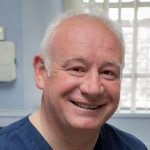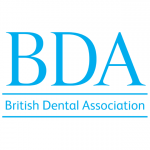Speed and efficiency have been important aspects in dentistry for many years. The ability to deliver dental treatment in a short timeframe, without compromising on quality of the results achieved, benefits patients and practitioners alike. The advantages of maximising on both have become even greater in recent times, with many professionals looking for ways to really optimise appointment times as patients return to the practice. Finding the right materials, equipment and techniques is therefore crucial for all clinicians and their teams.
Patient satisfaction
Even prior to the events of 2020, many people sought efficient solutions in various areas of life. Modern society has long been about instant access – to information, other people, products and services, among many other examples. As such, most patients take a similar approach to their dental care and expect the same speed and efficiency in the treatments they receive from their dental team. Meeting or even exceeding their expectations for fast dental care that gets them out of pain or gives them the smile they’ve always wanted will lead to happy patients. They get the treatment they need, as well as the boost in self-confidence that comes from a healthy, beautiful smile. They are also likely to appreciate their oral health, in turn promoting continuity of their dental care.
Happy patients, happy dentist
Satisfied patients mean several benefits for the dentist. Firstly, patients who are happy with the service and treatment outcomes they receive and are more likely to return. Their trust in their dentist’s and/or dental hygienist’s ability to deliver the care they need and desire will encourage their loyalty and help build a reliable patient-base for the clinician. Happy patients are also much less likely to complain about the treatment they receive – in the litigious society we live in today, this provides one less thing for clinicians to worry about.
Practice endorsement
Of course, another consequence of happy patients is the positive impact they have on the practice itself. Many people recognise when their dental team deliver exceptional care and they will show their appreciation by relaying their experience to friends and family. Some will also leave a review on the practice website or social media pages. Their praise is seen by others and provides an endorsement that encourages new people to attend the practice for their own treatment. It might be the new age ‘word-of-mouth’ marketing, but it is every bit as effective for a successful business.
Skill development
In order to deliver fast and efficient clinical procedures, it’s important that dental professionals have the right skills. Regularly refreshing and updating capabilities in key disciplines will ensure that practitioners remain on top of the latest techniques and concepts in the field. On-going training is also a great way of discovering and successfully introducing new procedures and treatments that could further optimise daily efficiency. Digital technology is a particularly popular avenue in dentistry right now, with solutions designed specifically to enhance accuracy, predictability and speed in a wide range of treatments. There are many different training courses in this and various other fields for all members of the dental team to take advantage of. Blended learning opportunities have come into their own in recent months, so developing skills and unearthing new techniques has never been easier.
Material selection
With skills upgraded, it’s vital to use products and materials that reflect the standard of dentistry being aimed for. Take the restorative workflow as an example. Your technique could be flawless, but if you’re using a composite that requires several steps or an adhesive that’s difficult to apply, your patients aren’t going to be impressed. Unfortunately, humans have what is described as a ‘negativity bias’ – a tendency to notice and remember unpleasant experiences over pleasant ones, due to greater reactions to negative stimuli in the brain.[i] This means that patients will hone in on any aspects of treatment they are not happy with, likely forgetting the fact that everything else went smoothly.
 Minimise the risk of negative experiences by utilising materials designed specifically for accuracy, speed and efficiency. For example, Filtek One Bulk Fill Restorative composite, Ketac Universal Glass Ionomer Restorative and Scotchbond Universal Adhesive from 3M Oral Care enable a highly effectual and simplified workflow. They are easy to handle and apply, optimising patient comfort, plus they deliver excellent aesthetic results in a wide range of indications without compromising the quality of treatment outcomes.[ii] [iii] [iv]
Minimise the risk of negative experiences by utilising materials designed specifically for accuracy, speed and efficiency. For example, Filtek One Bulk Fill Restorative composite, Ketac Universal Glass Ionomer Restorative and Scotchbond Universal Adhesive from 3M Oral Care enable a highly effectual and simplified workflow. They are easy to handle and apply, optimising patient comfort, plus they deliver excellent aesthetic results in a wide range of indications without compromising the quality of treatment outcomes.[ii] [iii] [iv]
Efficiency is the future
It might have been a strange few months for dentistry – like many other industries – but efficiency and quality have never been so important. Thankfully, there is plenty you can do to deliver quick and accurate dental care to your patients by simply reviewing your skills, equipment and materials.
For more information, or to request a video call with your local representative, call 0800 626 578 or visit www.3m.co.uk/Dental
3M, Filtek, Ketac and Scotchbond are trademarks of the 3M Company.
Author – John Rafelt. After finishing his PhD in Chemistry in 1999 at York University, John worked as a food analyst at the Government research laboratories and an advisor on research funding working closely with the European Commission. John joined 3M Espe in 2002 and is currently Scientific Affairs Manager for the 3M Oral Care UK and Ireland region. John lectures widely on advancements in dental materials and regularly writes articles on the same topic for the dental press.
[i] Marano HE. Our brains negative bias. Psychology Today. June 2013. https://www.psychologytoday.com/gb/articles/200306/our-brains-negative-bias [Accessed May 2020]
[ii] 3M Oral Care Internal Data: Filtek One, Simpliciity – 2016, claim number 6809
[iii] 3M Oral Care Internal Data: Ketac requires fewer clinical steps; 2015. Claim no. 6326
[iv] 3M Oral Care Internal Data. Easy to use, one application. Claim 4825 (2011).










 Minimise the risk of negative experiences by utilising materials designed specifically for accuracy, speed and efficiency. For example, Filtek One Bulk Fill Restorative composite, Ketac Universal Glass Ionomer Restorative and Scotchbond Universal Adhesive from 3M Oral Care enable a highly effectual and simplified workflow. They are easy to handle and apply, optimising patient comfort, plus they deliver excellent aesthetic results in a wide range of indications without compromising the quality of treatment outcomes.
Minimise the risk of negative experiences by utilising materials designed specifically for accuracy, speed and efficiency. For example, Filtek One Bulk Fill Restorative composite, Ketac Universal Glass Ionomer Restorative and Scotchbond Universal Adhesive from 3M Oral Care enable a highly effectual and simplified workflow. They are easy to handle and apply, optimising patient comfort, plus they deliver excellent aesthetic results in a wide range of indications without compromising the quality of treatment outcomes.





